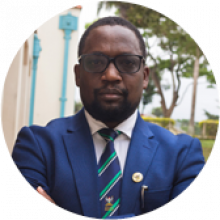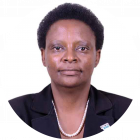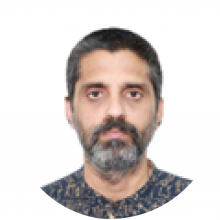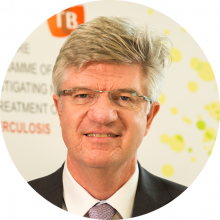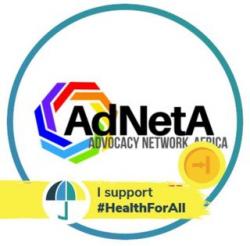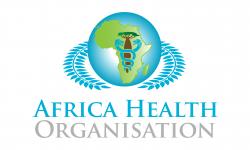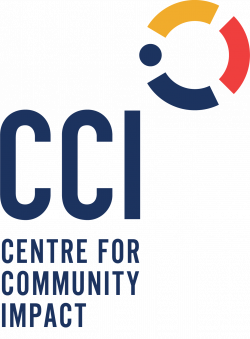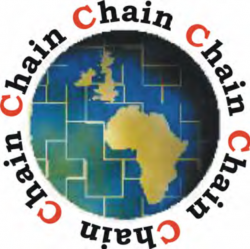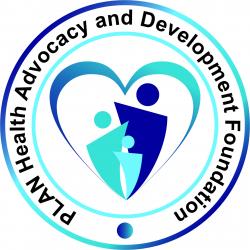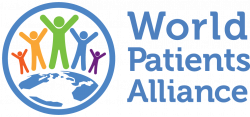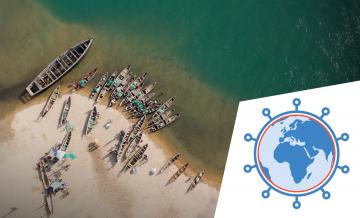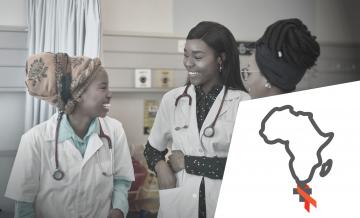To stay updated on the relevant developments, make sure you are signed up for our newsletter.
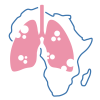
Conference on Innovations in Tuberculosis 2024
What's New
About this Program
Tuberculosis (TB) caused 1.6 million deaths in 2021, being the leading cause of death among infectious diseases, above HIV. Yet, it is a curable and preventable disease. While a quarter of the global population has been infected, only 5-10 % of infected individuals develop symptoms. The highest burden regions are South-East Asia, Africa, and the Western Pacific. This bacterial disease is treated by a long course of antibiotics. Nevertheless, for Multidrug-resistant TB (MDR-TB) treatment options are limited, and MDR-TB remains a public health crisis and a health security threat.
TB is a priority on the global health agenda. Orchestrated actions of national and global leadership, researcher organizations, and civil societies strive to achieve a world free of TB. Towards this goal, equitable access to prevention, testing, treatment, and care remains a challenge. On the other hand, we are witnessing encouraging new tools to curb TB. A recent study demonstrated a remarkable reduction in TB transmission due to nutritional supplements offered to household contacts, providing an evidence-based approach to intervene with structural determinants of TB, such as malnutrition. On the biomedical side, a historical milestone seems to be within close range, with the late-stage clinical evaluation of a vaccine to prevent a pulmonary form of TB in adolescents and adults, developed by the Gates Foundation. In parallel, new treatment guidelines on 6-month all-oral regimens for MDR-TB offer simplified treatment options for those patients.
Yet these exciting developments and innovations are mainly discussed at major international meetings. This, in turn, offers limited space for researchers and healthcare professionals from high-burden countries in Africa, and restricts discussions tailored to regional epidemiological situations, healthcare, and societal contexts. To this end, we propose a platform to disseminate clinically relevant innovations and discuss their translation and implementation in Africa, considering region-specific epidemic patterns, available prevention, testing and treatment options, and healthcare settings.
Local Chairs
General Information
• Abstracts
• Poster-viewing sessions
• Capacity-building sessions
• Mentoring Sessions
• Roundtable discussions
• Pro-con debates
• Networking Opportunities
• Exhibition
• Epidemiologists and public health experts
• Program implementers
• (Non)Government representatives
• Health authorities
• Residents, and post-graduate students
• Advocates and community representatives
• Industry representatives
- Create an African dissemination platform for an unbiased, scientific exchange and education regarding clinically relevant advances in Tuberculosis;
- Provide educational settings to discuss the clinical translation of recent developments considering regional epidemic patterns and healthcare systems;
- Share real-world experience and facilitate evidence-based program implementation;
- Foster new and lasting cross-disciplinary collaborations aiming to strengthen Tuberculosis research and management in high-disease-burden regions;
- Encourage early-career investigators to actively participate in the program and support their career trajectory toward future leaders in Tuberculosis research.
Practical Information
Any individual who feels discriminated against, harassed, disrespected, or marginalized is encouraged to report the incident(s) to VE and AME via info@amededu.com or to one of our on-site personnel.
Any participant who is found to have exhibited any inappropriate conduct or behavior against others may be removed from the program.
Fees and Conditions
|
Academia |
RLS |
Industry |
Local HCP |
|
|---|---|---|---|---|
|
Early Fee (payment before/on 23 February 2024) |
€595 |
€100 |
€795 |
€30 |
|
Regular Fee (payment before/on 20 June 2024) |
€795 |
€150 |
€995 |
€40 |
|
Onsite Fee (payment before/on 1 July 2024) |
€895 |
€200 |
€1095 |
€50 |
|
Fee Waivers |
|
|---|---|
|
NGO Representatives / Government Representatives (i.e. MOH, NIH, NIAID, etc.) / Advocates |
50% Off Current Regular Fee |
|
Members of Endorsers |
25% Off Current Regular Fee |
|
Sponsors |
Contact Secretariat |
If you are eligible for a discount, please contact the conference secretariat Yulia Veldhuis at yulia.veldhuis@amededu.com for the special registration code.
*Countries included in the low-income and middle-income economies list of the World Bank Classification
Important
-
We strongly advise that you register early to ensure your registration. Registration will close when the capacity of the venue is reached.
-
Submission of your online registration does not guarantee that your registration has been accepted. Your registration is final when full prepayment has been received and a confirmation of your registration has been sent.
- Access to all scientific sessions, including poster area
- Conference pack, including abstract book and program
- Refreshments during the coffee breaks
- Buffet lunch on conference days
IMPORTANT:
- No day rate is available
- Payment can only be made by credit card.
- Virology Education reserves the right to cancel improper registrations. Claims for a refund will not be honored.
To be eligible as an early-career investigator, one should either be a current Master/PhD student or have obtained an MD/PharmD/PhD degree in the last five years. An application form needs to be completed by a supervisor and received by the Virology Education secretariat at least two weeks prior to the start of the workshop. Virology Education will contact the early-career investigator with instructions regarding the registration procedure.
- Cancellation before/on 3 June 2024: 50% refund (minus an administration fee of €40)
- Cancellation after 3 June 2024: Unfortunately, no refund will be given
If you are unable to attend the conference, a substitute delegate is always welcome at no extra charge, provided that a letter of authorization from the original participant has been received and the conference secretariat has been notified of the name of the substitute delegate before 19 June 2024. A statement (email/letter) of cancellation must be sent to Virology Education.
1. Proof of accreditation
2. Valid identification (e.g. passport)
3. A letter from your assignment giver stating the details of your assignment (e.g. editor)
4. At least 3 previous written assignments in recognized outlets on HIV. If you are a freelance journalist, the assignments can be from different (recognizable) news outlets. Links to online publications are accepted
5. The website of the publication(s)/blog(s) that will be featuring your story on this workshop
A complimentary or reduced registration fee may apply for accredited media participants depending on availability. Preference will be given to credible print and online news sources. Please contact the conference secretariat for registration conditions.
We would like to receive a copy of your workshop report/ article once it is finalized.
All credentials will be verified by the Organizing Committee of the Workshop. Media representatives are kindly requested to register by sending the above-mentioned information to info@amededu.com.
Important: Media is restricted to the written press. Recording on film or photo is not allowed. Virology Education will request a copy of the written piece once it is finalized. Media representatives must also agree to abide by the 2020 embargo policy.
The program for the Conference on Innovations in Tuberculosis 2024 is currently under development and subject to change.
Day 1 - Wednesday, 3 July 2024
Day 2 - Thursday, 4 July 2024
The Abstract Submission Portal is now open!
Abstracts
- The Conference on Innovations in Tuberculosis accepts new original data as well as encored abstracts. All abstracts must focus on the African region and contain up-to-date information at the time of the conference.
- Registration fees are waived for early-career professionals with an accepted abstract. A 50% discount is offered to early-career professionals without an accepted abstract.The requirements for the application are specified here.
- Abstract submitters are strongly encouraged to use person-first language in their abstracts. View the video tutorial and guidelines here.
Terms and Conditions
By submitting an abstract to a meeting organized by Virology Education BV (VE), the abstract submitter hereby agrees to the terms and conditions.
The terms and conditions can be viewed here.
· TB Vaccines and Prevention
· Diagnostics
· Treatment
· MDR-TB
. Pediatric Tuberculosis
. TB, comorbidities, and coinfections
. Clinical Management
. Program Implementation
- Background: A concise statement of the issue under investigation or a hypothesis;
- Material and Methods: The experimental methods used (including the statistical analyses employed);
- Results: Specific findings (promises such as "to be completed" or "to be presented" are not acceptable);
- Conclusions: A summary of findings that are supported by your results (statistical analyses used to support the conclusions, where appropriate, should be included; concluding statements such as "the results will be discussed" are not acceptable).
Please note that abstracts cannot be accepted if tables or graphs are included. The maximum word count for the abstract body is 500 words.
Abstracts are considered official communications to the conference and will be treated confidentially. Submitters of accepted abstracts agree to attend the meeting and present their abstract as scheduled.
We encourage you to use person-first language in your abstract(s). View our guidelines here: https://academicmedicaleducation.com/person-first-language
The members of Scientific Committee are hand-picked by the Organizing Committee (OC) and the conference secretariat based on their significant contributions and commitment to the field. They assist the OC by providing them with suggestions for speakers and topics. In addition, members of the Scientific Committee participate in reviewing submitted abstracts, and play an active role during the workshop as moderators and/or chairs of sessions.
- Amsalu Bekele Binegdie, MD, College of Health Sciences, Addis Ababa University, Ethiopia
- John Bimba, PhD, Bingham University, Nigeria
- Maryline Bonnet, MD, PhD, The French National Research Institute for Sustainable Development (IRD), the University of Montpellier and the National Institute of Health and Medical Research, Montpellier, France, Mbarara University of Science and Technology in MBarara, Uganda
- Jeremiah Chakaya Muhwa, MBChB, MMeD, DThM, Kenyatta University, Respiratory Society of Kenya, Kenya
- Novel Chegou, BMLS (Hons), BSc. Hons., PhD, Stellenbosch University, South African Medical Research Council Centre for Tuberculosis Research, Stellenbosch University, South Africa
- Joel Fleury Djoba Siawaya, PhD, HDR, Mother and Child University Hospital, Gabon
- Thandi J.N Dlamini-Miti, MBBCh, Msc, Isango Lethemba TB Research Unit, University of the Witwatersrand, South Africa
- Alberto García-Basteiro, MD, PhD, Barcelona Institute for Global Health (ISGlobal), Spain, Centro de Investigação em Saúde de Manhiça (CISM), Mozambique
- Norbert Heinrich, MD, LMU University Hospital, Division of Infectious Diseases and Tropical Medicine, Germany
- Bouke de Jong, MD, PhD, Institute of Tropical Medicine, Belgium
- Celso Khosa, MD, PhD, Instituto Nacional de Saúde, Mozambique
- Andre Loxton, PhD, SAMRC and Stellenbosch University, South Africa
- Sayoki G Mfinanga, MD,PhD, Liverpool School Tropical Medicine, University Collage London, England, Nelson Mandela African Institution of Science and Technology (NM-AIST), The Muhimbili University of Health and Allied Sciences, Tanzania
- Lloyd Mulenga, BScHb, MBChB, MSc, MMed, PhD, Ministry of Health, Zambia
- Esther Stanslaus Ngadaya, MD, PGDHE, PhD, National Institute for Medical Research (NIMR), Kampala National University, Tanzania
- Abel Nkolo, MBChB, MPH, PhD, Africa and LAC Region, Uganda
- Nyanda Elias Ntinginya, MD, Msc, PhD, National Institute for Medical Research (NIMR), Tanzania
- Issa Sabi, MD, MMed, PhD, Mbeya Medical Research Center, National Institute for Medical Research (NIMR), Tanzania
- Simon Walusimbi, MD, MSc, PhD, Makerere University School of Public Health and Lung Institute, Uganda
Support Our Initiative
Financial backing helps us deliver an impactful meeting experience to the benefit of healthcare professionals and researchers interested in the Conference on Innovations in Tuberculosis.
This collaboration plays a vital role in both the organizational as well as scientific success of the program.
To show your commitment to the cause, get in touch with us for a tailored
support package by contacting Kim Go at kim.go@amededu.com.
Benefits of Support
By supporting this program, we can offer the following advantages for your company.* Please contact us for the most recent support level benefits for this program.
- Symposium opportunities
- Non-commercial interviews with company representatives
- Verbal acknowledgement during the program
- Discounted and complimentary registrations for your representatives
- Company acknowledgement on digital meeting materials including but not limited to newsletters, flyers, the streaming platform, and our website
- Company acknowledgement on printed meeting materials including but not limited to banners and the program book
- Digital and printed advertising opportunities
- Social media shout-outs
- Logo on the conference bag
*Subject to the support level.

